"I Realized the Worst Had Happened, But I Have Five Sons in Service and Didn't Know Which One Was Killed"
Dr. Yehiel Leiter, father of Moshe Yedidya Leiter, who fell about a month ago in Gaza, shares about his son's unique character, the tragic news received on Shabbat evening, and his regret for not expressing enough love.
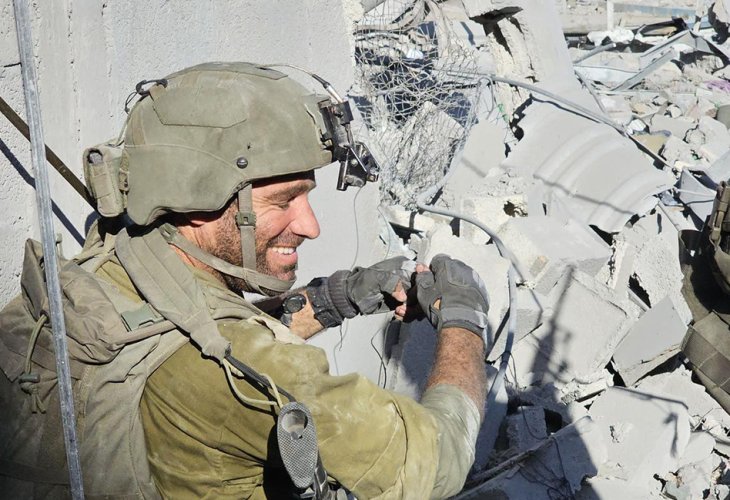 Moshe Yedidya Leiter ז"ל
Moshe Yedidya Leiter ז"ל"You're asking something difficult of me," says Dr. Yehiel Leiter, father of Moshe Yedidya Leiter, an IDF officer who fell in the Gaza Strip about a month ago. "Moshe was a person who did so many things, a man with a rich and diverse personality, so choosing one moment that characterizes his personality is very complex. But if I have to choose, I'll tell about a special moment that happened after the birth of Noam, our seventh son.
"When our Noam was born, we immediately understood he has Down syndrome, and Moshe cried. He did not cry out of sadness; he cried because he knew what he was getting into. He cried because it was clear to him that he was taking responsibility for his brother, responsibility for a lifetime. He understood he faced a great mission, one that would accompany him for many years. And yes, in a certain sense, that was Moshe. Always ready to give for others, to see where he needs to contribute, to invest for the common good. And because of these amazing traits, sadly, he also died."
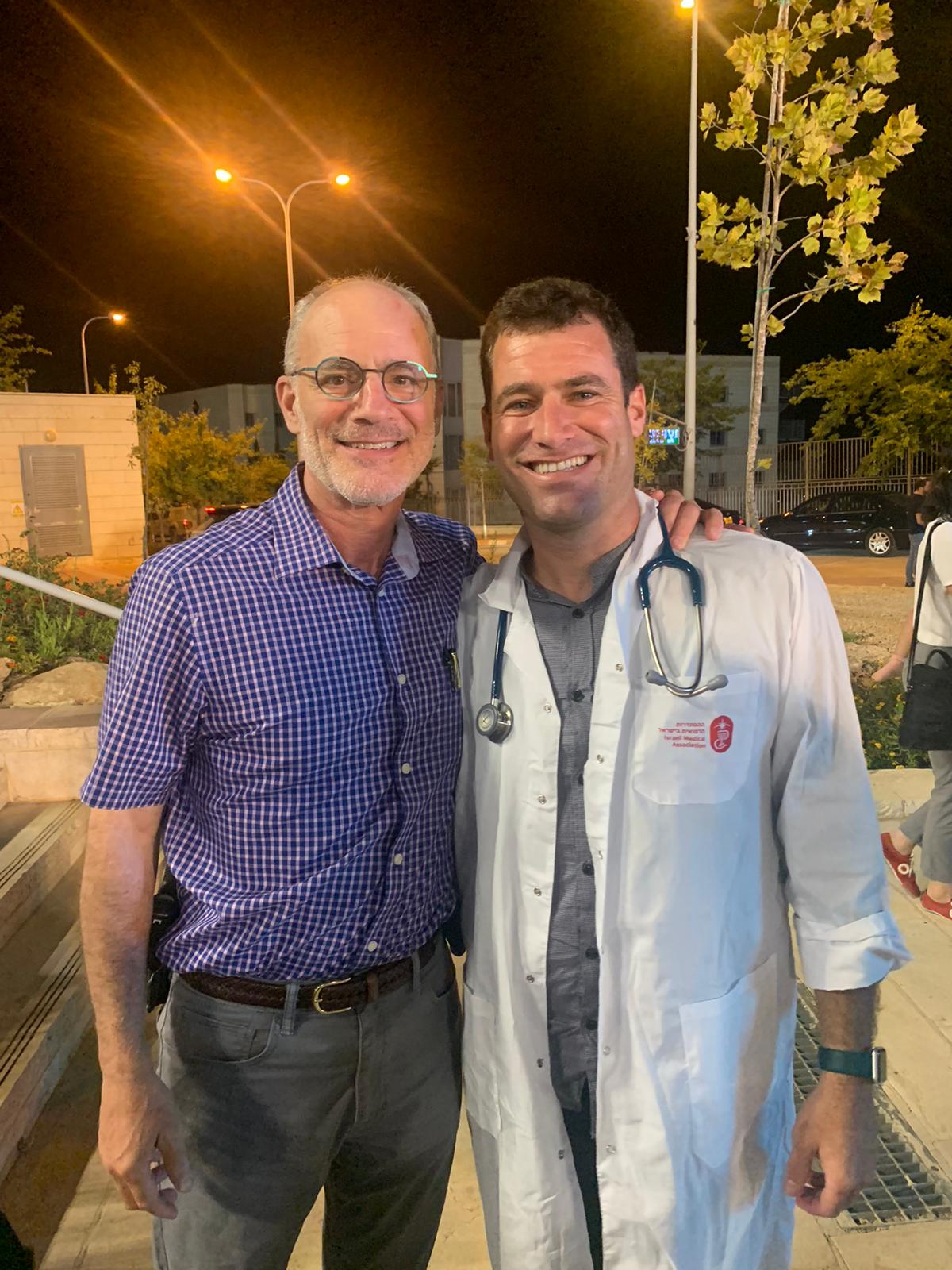 Dr. Yehiel Leiter with his son Moshe Yedidya Leiter z
Dr. Yehiel Leiter with his son Moshe Yedidya Leiter z
A Warrior, Friend, Human
I meet Yehiel Leiter in Jerusalem on a particularly wintry day, and at times, the storm outside seems to reflect the turmoil within him. Leiter, 64, a father of eight residing in Alon Shvut, is a strategic policy advisor. In his past, he served in several senior public positions, including as chief of staff to Benjamin Netanyahu during his tenure as finance minister. At first glance, Leiter's persona is serious and restrained, but when he talks about Moshe, something softens in his expression.
"Moshe was born in Hebron," recalls Leiter, "and when he was eight, we moved to Eli. He did not study much in school, and during lessons, he mostly read books. On one of the days I visited him at 'Makom Haim' Yeshiva where he studied, the head of the yeshiva, Rabbi Dov Zinger, showed me a donkey from his office window and told me: 'That's your son’s. Last week he went down to the neighboring Arab village and bought a donkey.' That was Moshe, a man who loved adventures.
"Moshe didn't study in the 12th grade and decided to start the year at the Eli Preparatory School. The head of the prep school, Rabbi Eli Sadan, told him that they don’t accept students before 12th grade, but for Moshe, it didn’t really matter. He went to the beit midrash on Rosh Chodesh Elul, but they still did not agree to accept him. They said he wouldn’t have a study partner, nor a place to sleep. Yet, he persisted, and eventually, they accepted him as a full-fledged yeshiva student."
I assume at Eli Preparatory School he also prepared for the army and planned the next stage of his life.
"Yes, military service was very significant to him. He enlisted in the Sayeret Matkal unit and served there for about 15 years, except for a year he served in the Givati Brigade. Moshe led complex operations behind enemy lines that are still classified, and he was an excellent soldier. His brigade commander in the current Gaza fighting told us that from the moment Moshe arrived in the brigade, he constantly heard the name Leiter, and it is quite unusual in a brigade commander's circle to talk so much about a company commander. When summarizing combat plans, the commander went to Moshe to ask his opinion on them, which is very unusual. Even though he has a command post with lieutenant colonels and colonels, he wanted to hear Moshe’s opinion.
"Beyond being a field fox, Moshe also deeply understood human psychology. His mere presence instilled confidence in people, and he would uplift and encourage the soldiers. In general, he was incredible with people. A few years ago, he visited my mother in the U.S., and at Shabbat at her house, he met several Satmar Hasidim. As soon as he came in, they began criticizing him about Zionism, etc., and my mother told me that after an hour and a half, they left there connected and hugging. I asked him what happened, and he said that he immediately realized that talking wouldn't work, so he suggested singing holy songs together, and they immediately connected and had a wonderful experience together.
"When the IDF entered Gaza, it was clear to me that Moshe would be among the first to enter, and in fact, he led his brigade, the Fire Division, a very central and important division in the IDF. The division has eight battalions, and each battalion has three companies, and he was in the lead company that led the entire division. Moshe always insisted on going first, and even when others wanted to take the risk, he didn’t let them. Not a few fighters, including Elisha Medan (son of Rabbi Yaakov Medan, A"I), who was injured with Moshe and had his legs amputated, said they were only willing to fight with Moshe. Yossi Hershkowitz z"l also wanted to fight only with him, and they were killed together from the same tunnel explosion that was not exposed. David, my fourth son, was also with them in the force, just a few meters away when it happened. It’s a terrible tragedy to see your brother killed before your eyes, but thank God David has enormous inner strength. This tragedy has changed our lives forever, but with God’s help, we will face it with courage."
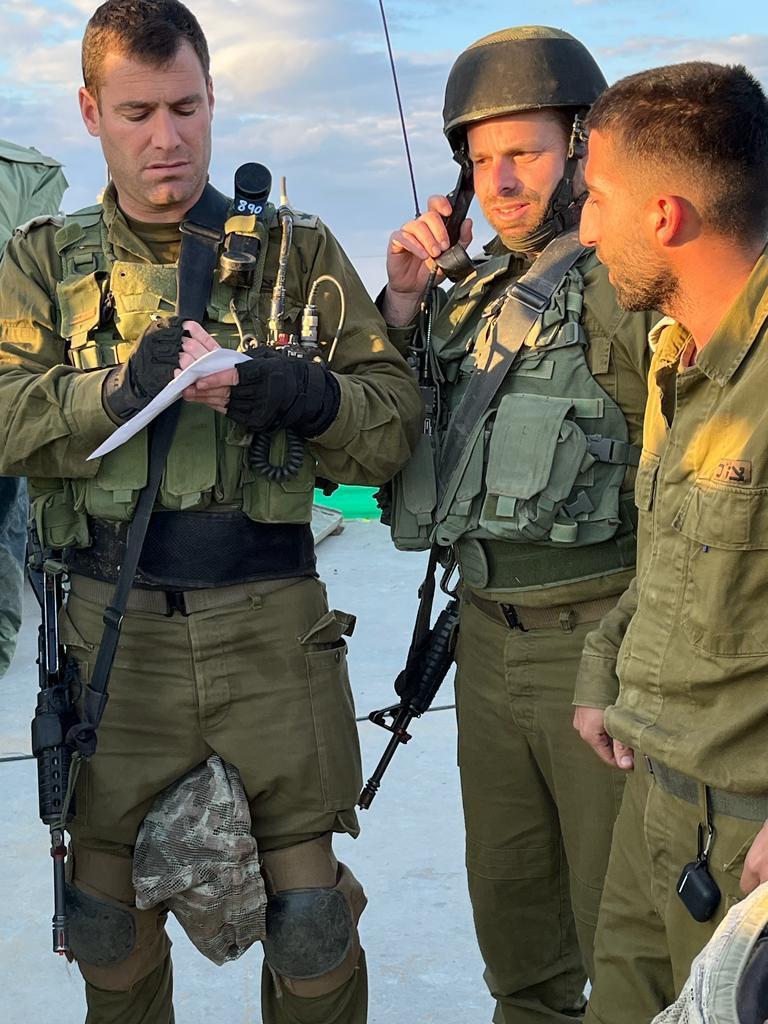
When the Prime Minister Swears
According to Leiter, even though several weeks have passed since Moshe’s fall, time does not dull the pain: "Moshe was very present in my life and in the life of the entire family. He was a person full of life, and when that life is not there, a large void is left. I walk around the world with the feeling that something in me has died, that I have lost part of my life. We greatly miss Moshe's leadership within the family and in general, his concern for his siblings, his innovations, and many other things. Moshe always made you feel you exist, that you are important.
“Meanwhile, of course, it breaks the heart to see how Moshe's wife and children are coping with the void he left behind. He and Tzipi have six children—the youngest, Ivri Natan, was born just three months ago. Tzipi is a very strong and talented woman; she manages the southern district of a social workers' foundation, very serious. There was a great love between them, and it is undoubtedly hard for her. In all of his dealings, Moshe was also a full-time father, and the children miss him very much. And if we're already mentioning the children, I’ll tell you that it was important to Moshe to set fixed times for Torah study, and two years ago, he asked me to learn the Torah portion of the day by phone with his eldest son, and that’s what we did."
What did Moshe love to do? What was he particularly good at?
"Beyond Moshe being talented in many fields and being an excellent soldier who served 15 years in the commando unit Sayeret Matkal, and beyond being an amazing person of kindness that we are just now beginning to understand how much due to the stories that reach us, he started medical studies at age 33. Recently he completed the academic part and was supposed to start his specialization.
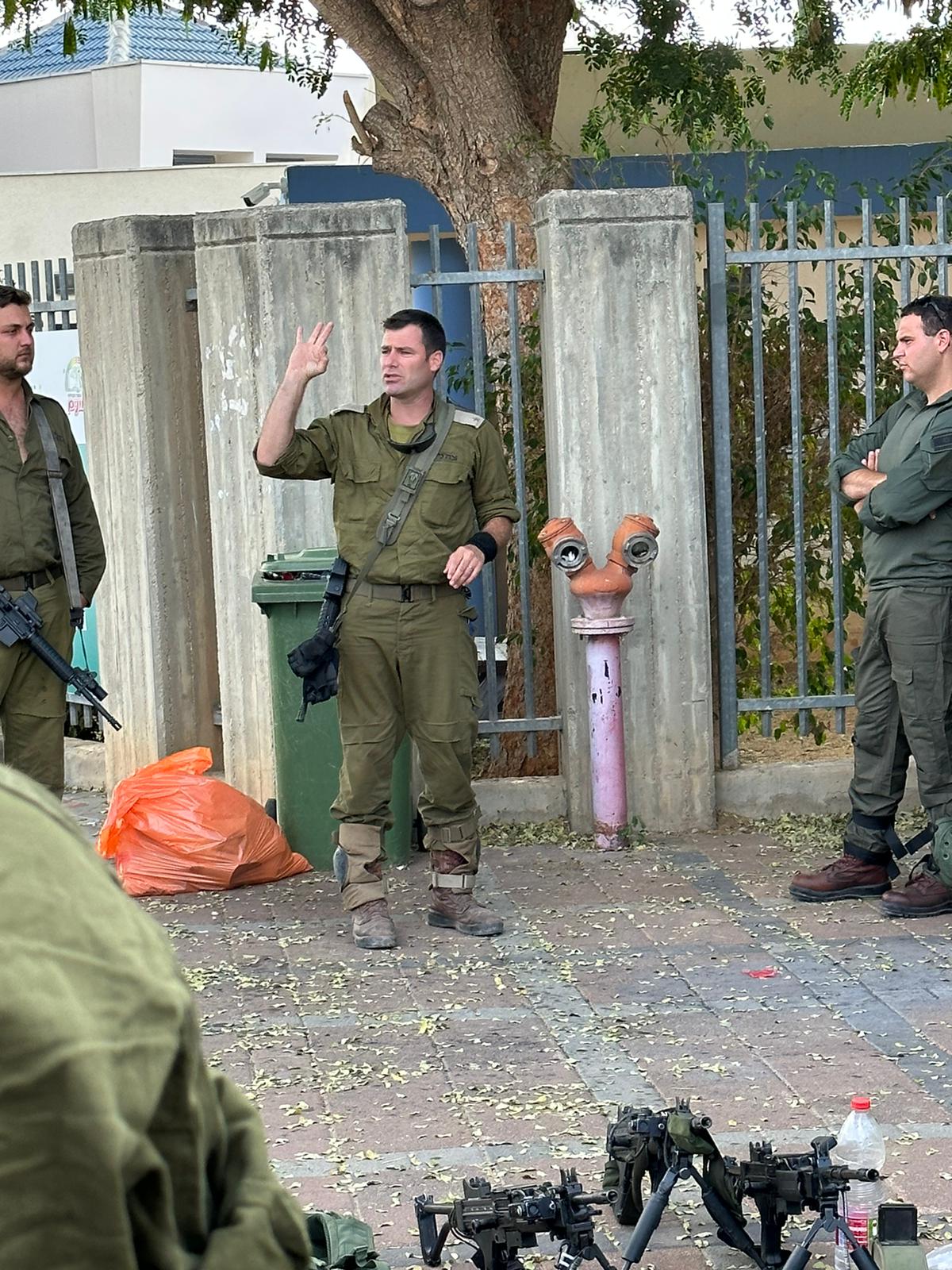
"I was very proud of Moshe, but he was very modest, so he didn’t like that. Sometimes I had meetings with people from abroad and asked him to come in his uniform, but he thought it was prideful and refused. Of course, he never told us about the special operations he did in the army. Overall, every meeting with him was an experience because he was full of insights about life. For example, a few years ago, we did a project together on the BDS issue with the Strategic Affairs Ministry, and we went together to present it abroad. I saw how he entered an auditorium of over 400 people, instantly connected with them, brought them to our booth, and sanctified God's name."
When was the last time you met?
"A week before he entered Gaza, I went down to the training area where he was and brought him snacks and goodies. He had just come out of a briefing, and I put my hands on his head and blessed him with all my heart because I knew they were entering Gaza in a few days. After I blessed him, he pinched my cheek, like reversing the roles for a moment, gave me two light taps on the cheek, and said, 'Dad, everything will be okay.' Apparently, he knew he needed to calm me down. And that was it; I didn’t see him after that.
"Moshe was killed on Friday afternoon, at twenty to four, while we were making phone calls within the family to wish each other Shabbat Shalom. That Shabbat, I was at my home in Alon Shvut. On Friday night, I ate with the Mandel family who lost their son, a Nahal officer, in battles with terrorists in Nablus. I hadn't been sleeping well all week, but when I parted from them and returned home, it was the peak—I had a terrible feeling. The knocks came at half-past midnight, I asked who it was, and when they didn’t answer, I immediately understood who was standing behind the door. I realized the worst had happened, but I didn’t know who was killed. Four of my sons and two sons-in-law were in service, and with terrible tension, I opened the door.
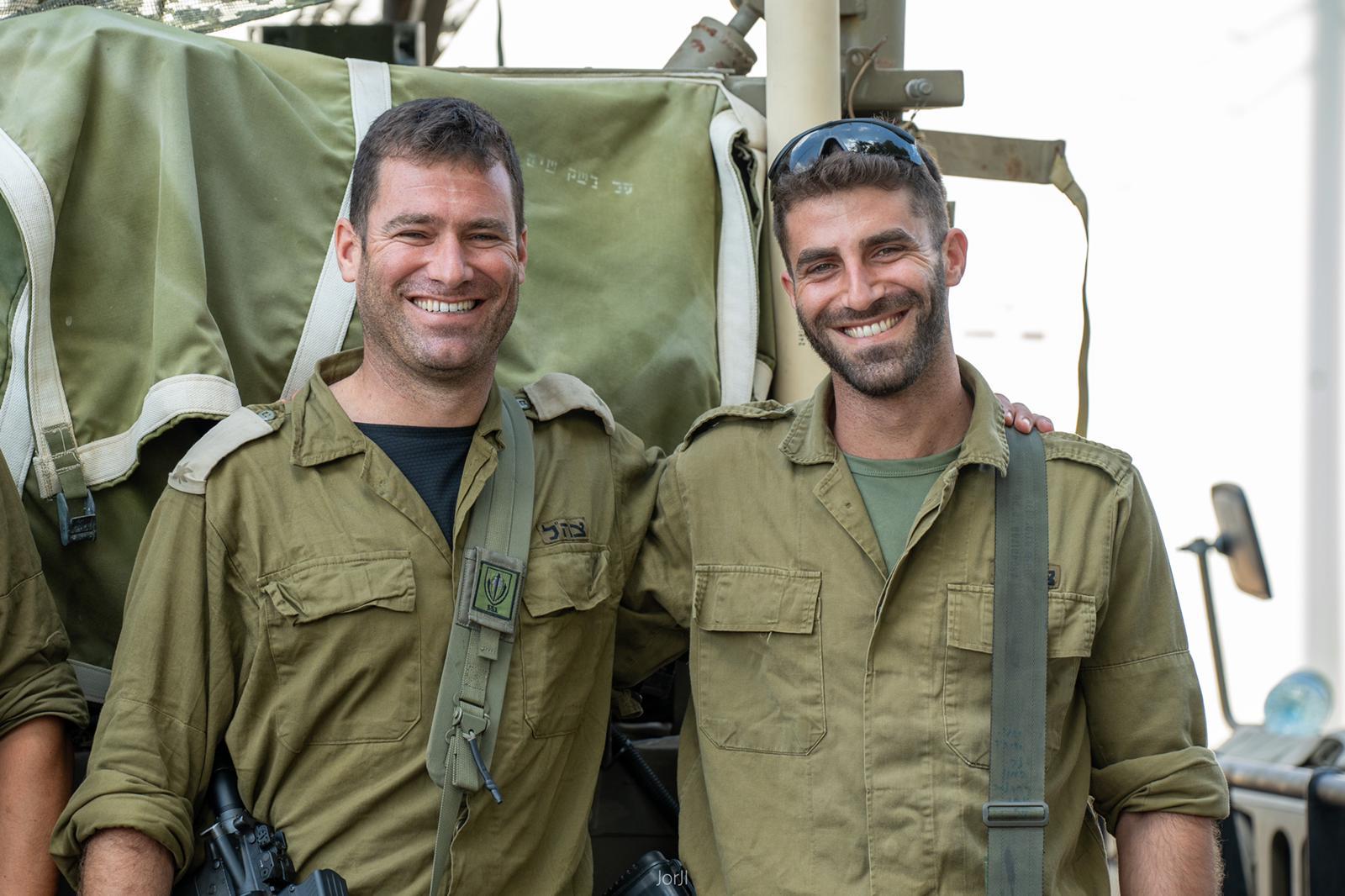
"The first minutes were indescribably hard. They said Moshe had been killed, and there are no words to describe the feelings that overwhelmed me. The funeral was held on Sunday morning, and it was unbearably difficult. One significant thing that managed to strengthen me a bit was a phone call I had with the Prime Minister. I was his chief of staff when he was finance minister, and over the past 20 years, I participated in several of his campaigns, and he also asked me to fill several roles, but I didn’t respond to that. Bibi called to console me, and I demanded he promise me he would finish the task properly. I told him that if Hamas is not completely erased, I will fear that my son's blood was spilled in vain, and he said to me, 'Yehiel, I swear to you that Hamas will be erased.'
"The longing for Moshe is very strong, and if I could tell him one last thing, I would tell him how much I love and appreciate him, and ask him to record these words for himself and listen to them repeatedly. Unfortunately, I didn’t say these words to him enough, and I hope with all my broken heart that he hears them now."

